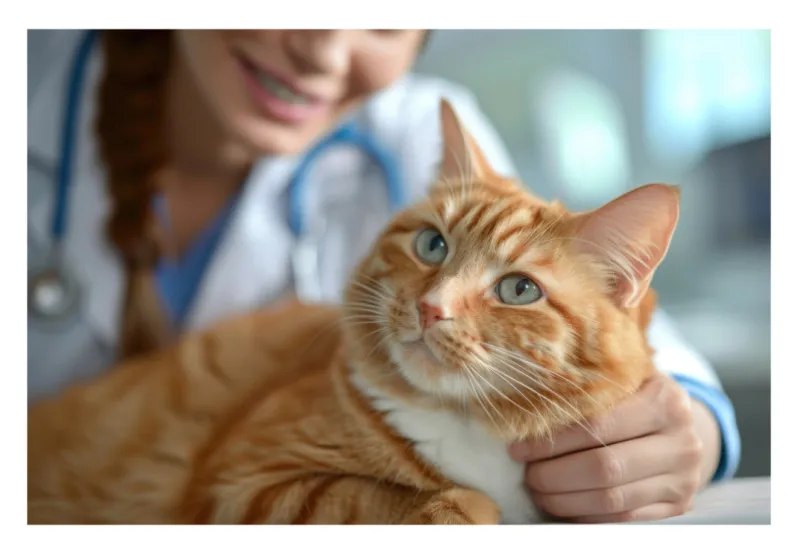Effect of Iron Supplementation on the response to Varenzin-CA1 in Cats with CKD and Anemia
Anemia is common in feline chronic kidney disease (CKD) and several options are available for treatment including the medication Varenzin CA-1®. Iron supplementation is an important part of the treatment of anemia in some patients with CKD, and is given as standard of care when the anemia medication Darbepoetin alpha is prescribed. Alternatively, Varenzin CA-1® has been shown to mobilize iron stores and upregulate intestinal absorption of iron, so the need for additional iron supplementation when this medication is prescribed is unclear. The aim of this study is to compare degree of response to Varenzin CA-1® with and without iron supplementation.

Client Compensation:
There is no cost to you for enrolling your cat in this study. You will receive complimentary physical examination for your cat, the medication, and diagnostic testing during the monitoring period.
Potential Medical Benefits:
Your cat will undergo treatment for its anemia with Varenzin CA-1®. Iron supplementation may improve response to Varenzin CA-1®.
Potential Medical Risks:
Your cat may experience transient stress of being in the hospital and mild discomfort of having blood drawn. If you cat is excessively stressed at any time, we will not continue with drawing the study samples. Gabapentin may be given to alleviate stress associated with visits and sample collection. If this is not effective, we will discuss with you whether continuing the study is in your cat's best interest. A blood draw can result in bruising at the site of the blood draw. In rare cases, using a needle to collect urine directly from the bladder may result in hematuria (bloody urine), nausea or very infrequently bladder rupture. Your cat will be observed closely for side effects and appropriate medical care will be provided.
If your cat was randomized to the group without iron, and it does not respond to Varenzin CA-1® as anticipated at 28 days, your cat will be given a rescue injection of iron. Your cat may experience discomfort from intramuscular administration of iron. Very rarely anaphylaxis has been reported as a result of iron administration. Your cat will be observed closely for side effects after the injection is given and appropriate medical care will be provided.
It is possible your cat's condition may not improve or it may worsen. It is possible your cat may not benefit from this study. Results of this study will not be available immediately. The goal of the study is to acquire information that could be beneficial managing patients with CKD in the future.
What qualifies my pet for enrollment?
Inclusion Criteria:
- Cats diagnosed with IRIS stage 2-4 CKD (serum creatinine ≥ 1.6 - 10.0 mg/dL) that are anemic with a PCV between 20-28% and for whom Varenzin CA-1® has been prescribed are eligible to participate.
- Concurrent therapies such as dietary management, potassium supplementation, anti-hypertensive medications and subcutaneous fluids are acceptable if they are given consistently throughout the study period.
Exclusion Criteria:
- Exclusion criteria include other uncontrolled systemic illnesses, complications of CKD such as kidney infection or ureteral obstruction, severe anemia (PCV < 20%), and decompensated CKD requiring hospitalization and intravenous fluid therapy.
- Cats receiving immunosuppressive medications are also excluded.
Diagnosis/Condition Being Studied: Anemia of chronic kidney disease.
Intervention to Be Studied: Iron supplementation with Molidustat (Varenzin CA-1).
Placebo-controlled Clinical Trial: Enrolled patients will be randomized to either active treatment/therapy, or placebo.
PRE-SCREENING QUESTIONAIRE
If you believe your pet may be eligible for this study, please complete a pre-screening questionnaire.